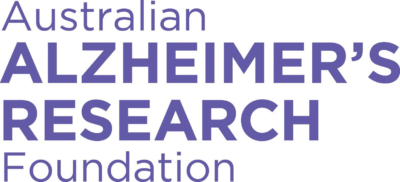Still going strong! Since 2006, the Australian Imaging, Biomarkers and Lifestyle Study (AIBL) has been uniting Alzheimer’s researchers across Australia. That’s 16 years of commitment!
AIBL is at the forefront of Alzheimer’s disease research, having contributed to the development of new diagnostic criteria for Alzheimer’s disease that permit earlier and more accurate diagnosis, and to the design of early intervention trials aimed at preventing the development of dementia.
The longstanding and highly respected study has led to increased Australian collaboration with international Alzheimer’s groups, and continues to collect valuable data which adds to the body of knowledge in the search for earlier diagnosis and treatment of Alzheimer’s disease.
The Australian Alzheimer’s Research Foundation contributes to the AIBL study by providing the clinical and laboratory research facilities to the research team.
Valuable data

Data collection for the AIBL study has continued, despite some pandemic-related disruptions. Individuals who have participated in the study since it began underwent their 180-month (15 years) follow-up assessment, whilst those who joined the study later underwent assessments ranging from 54 (4.5 years) to 126 month (10 years) of follow-up.
The study has collected up to eight “time-points” of data at 18-month intervals from over 2350 participants, yielding a current database of 8592 person-contact years. The amazing commitment of the study participants has enabled AIBL researchers to make world-class contributions to understanding the natural history of Alzheimer’s disease progression.
After a long wait, and years of work behind the scenes (led by Kevin Taddei), we have seen the addition of brain tau imaging (using a positron emission tomography, or PET, camera) to the array of assessments undertaken as part of the AIBL study.
Within the brain, tau protein is responsible for maintaining the structure of brain cells (neurons). However, in Alzheimer’s disease, the structure of tau is altered which results in tangles of tau protein forming within brain cells. These tangles disrupt cell function and contribute to cell death. The location and quantity of these tangles within the brain is proposed to be closely related to changes in memory and thinking that occur as Alzheimer’s disease progresses.
The implementation of this new technology in AIBL will improve our understanding of both the development of Alzheimer’s disease over time, as well as factors that modify disease risk. This new technology will also aid in the development of blood biomarkers for disease diagnosis and assessment of future risk.
AIBL maintains its position at the forefront of Alzheimer’s research globally. Further refinement and validation of blood biomarkers for Alzheimer’s disease occurred as did enhancement of our understanding of lifestyle influences on cognition and Alzheimer’s disease. Using knowledge gained from AIBL, the early intervention study AU-ARROW, commenced in 2022.
We thank all AIBL participants, past and current, without whom these achievements would not have been possible.
Some of our partners in the AIBL study include:
- The Florey Institute

